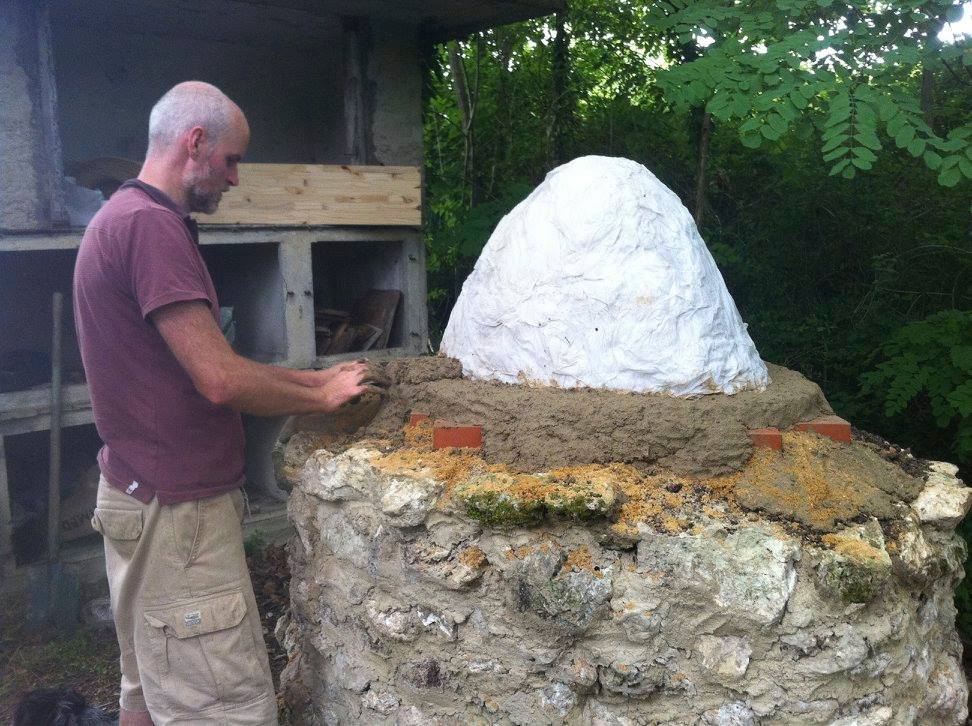
Click here to read Mick’s reflection on serving the Happy Farm and Plum Village for several years.
Q: How have you transformed at Plum Village? Considering the Mick from three years ago, what’s different about the Mick now?
Mick: I can see clearly I was happy before I came to Plum Village. I had good friends and good connections with family, and a good livelihood—I had a simple life. But big blocks of pain were inside of me. I wasn’t as aware of them as I should have been. I think the big transformation is actually learning to love myself, and it’s an ongoing journey.
I think it’s quite common these days (not just for women, but especially for women) for people in our cultures to have a hard time with the idea of our body image. It’s tied with our sexuality. So I’m gay. I like the word queer—which is an all-encompassing, broader term—so I don’t have to limit myself. In the past, I had loving relationships both with women and men, but when I looked deeply I still had difficulties accepting my sexuality. I probably would’ve continued the inner work of learning to love myself if I were living back in Belfast. But coming to Plum Village and taking the space to not be in relationship, and to have this time for myself was a catalyst for personal growth. This space helped me dive deeply inward at times.
I went through a long process before acknowledging that I was queer and thinking that this was okay. I shared with my family, friends and my workmates that I’m gay. Nonetheless, I had a deeply rooted internal homophobia that I think was transmitted from the wider culture I grew up in; sadly, probably even from wider family and friends. I thought I was cool with being gay. But often I caught myself making mildly homophobic jokes or even using the word ‘gay’ as a negative term.
I’m learning to love myself and to meet friends with whom I can share deeply. I can go to these friends and cry sometimes. This helps me heal. I recognised the deep sadness of missed long-term romantic opportunities with guys who loved me; I pushed them away because I wasn’t comfortable with my own sexuality. I’m learning to befriend myself and my own identity. It’s a deep healing.
I went through a long process before acknowledging that I was queer and thinking that this was okay.
Back then, I wasn’t ready for a relationship because I still carried these scars and this trauma; they’re still there, but they’re healing. In the gay community, especially for gay men, there is a belief that only big muscly guys are beautiful. It’s obviously the same in the media for women—very shallow and superficial. I suffered from not loving my own body.
I like many attributes about myself. I can be social and can connect to people. Still, that lack of body confidence can be deeply entrenched. It took me probably two years to talk about this in Dharma sharing. Once I said it, though, it was very liberating. I was not in love with my physical body at that time. I’ve come a long way along the path to recognise this. The culture I came from did not talk about this. I came from a conservative culture that sent the message about our bodies needing to be covered; we didn’t speak about our bodies, and shame existed about the physical body, sex and sexuality. As a result, my sexual energy and desire were tied into my body.
I’m learning to share with lay and monastic friends that my body has treated me well throughout my life: I’ve never had to be in hospital for surgery; I’m healthy and physically; my teeth are my own; my eyesight is still good, and I can hear well. This is amazing. I’m starting to love myself again. This self-love gives me confidence to go out and begin connecting with someone in a loving, noble way. I can take this openness of communication into a sexual relationship.
In the past, my conception of true love was completely off: there was limited checking in with the other person, limited expressing gratitude for my partner and limited acceptance of my responsibility for my actions. Now I have learned our Beginning Anew practice could be valuable. I am excited and nervous about venturing into the journey of a long-term romantic relationship again.
I’m learning to share with lay and monastic friends that my body has treated me well throughout my life.
Q: What concerns do you have about going back to Ireland? What will you miss about being in Plum Village? What is something you look forward to doing back home?
Mick: I read Thay’s called Fear during my healing process. Thay describes how we’re all born with original fear and original desire. The original fear is that we would be left alone; as a very young child or baby, we would be taken away from our mother. We depended on her for shelter, nourishment and life. Without her, we wouldn’t have survived childhood. We seek that kind of care, whether it comes from our mother, a romantic partnership or even our community. Thay says that ‘loneliness’ is the ill-being of our time.
As I’ve shared, my experience of loneliness has led to craving for a romantic relationship. In Plum Village, I have benefited so much from the community life. Sometimes it’s been challenging to share bedrooms. But what I’m so appreciative of is to wake up in the morning and be surrounded by people who are candid, caring and loving. They are here for themselves and for others. There’s a physical and spiritual community of friends and loved ones, lay and monastic. This community is composed of the small interactions of sitting and sharing our food together three times a day: it includes all of our practices, such as coming together for a Day of Mindfulness.
I have a fear of losing that community connection and of not finding that partner, especially when it’s something I’ve expressed as a volition.
Even though Ireland is a small country, the Sangha is very strong. The Plum Village tradition is very strong in both Northern Ireland and in the Republic of Ireland, especially since Thay came in 2012. I know we will continue to practice together and support one another. Sangha members have helped me practically and financially in my time in Plum Village. In Ireland, I aspire to connect and help in whatever way I can. The Sangha in my city is very strong. I can take refuge in my spiritual friends and I can contribute, whether it’s facilitating every few weeks or helping with admin or whatever is needed.
I have an aspiration to create something similar [to Happy Farm]with Sangha friends: a refuge for people to come together and take refuge in Mother Earth.
I’ll miss the Happy Farm, but I have an aspiration to create something similar with Sangha friends: a refuge for people to come together and take refuge in Mother Earth. We can grow food and cook together. We can sit down, eat and share that food together. The nature, food, community and Sangha can nourish us.
Many friends reached out to me because they know I’m coming home to Ireland, and I reach out to them. I have to set the intention of going in the right direction. In this way, I want to support myself financially with a simple life and to take refuge in the Irish Sangha.
In addition, I plan to maintain amazing connections with the root temple: Plum Village, France. I know we have a root temple in Hue, Vietnam, but I’ve heard people describe Plum Village as the mother ship. So I’ll come back to support the Happy Farms and Upper Hamlet. I’ll miss the weather, and the southern French climate will be missed.
Q: What did you learn in Plum Village about community and community building?
Mick: It’s applicable because I have the aspiration to live in a community. I don’t want to be in my own house or apartment, particularly in the long run. I have some friends who aren’t Plum Village practitioners, but they’re spiritual people. Some are Quakers; some are Christian; some are Buddhist. They want to create an ecological village, while bringing a spiritual element to that endeavour.
Regarding community building, one of our monastic brothers who is from Italy, Thay Phap Bieu, shared that as we all live, practice and serve in community together, it can be useful to practice with the mind of ‘non-self confidence.’ Thay Phap Bieu shared this before the beginning of the Summer Retreat [in 2018], which he called the ‘season of service.’ The Summer Retreat is a time when hundreds of families and children come to stay with us.
As community members we are all engaged in service, and the practice is to contemplate the mind of ‘non-self confidence.’ We develop a confidence that our friends whom we live with in community will work hard taking care of their work responsibilities for the community. If we all trust each other to serve, to contribute and to trust our non-self, then together we manifest a beautiful village and beautiful experiences for all our guests who come to join us on retreat throughout the whole year not just in the summer. This was a revolutionary concept for me. He took this idea from the Buddhist practice of non-self; we inter-are; we are all connected. These ideas come from the Heart Sutra. Everything is dependent upon everything else. Thay applied those concepts to Plum Village.
As Happy Farmers our service is cultivating organic food for the community, cultivating a space for the practice to thrive on the farm and cultivating a space of refuge for visitors and all the beings that dwell on the land there. Practicing non-self confidence, I am confident that my friends, sisters and brothers are doing the same. Everyone in Plum Village is doing amazing things. People organise the children’s program, which is a massive undertaking. Others cook meals for a thousand people every day. People constantly bring friends back and forth to the train stations and airports. Others prepare the meditation halls, where brothers and sisters give Dharma talks and on and on together as one community.
Thay Phap Bieu, shared that as we all live, practice and serve in community together, it can be useful to practice with the mind of ‘non-self confidence.’
Confidence in non-self is something that has stuck with me. Each year, we welcome a new team to the Happy Farm; I shared this with them before the start of the season of service during the Summer Retreat that confidence in non-self means we don’t have to do anything on our own. Rather, all that happens is done by the community. I will practice this daily; I don’t have to do anything on my own. This perspective helps with pride and ego, whether it’s in one’s livelihood, in community or even in relationships. If there are at least two people, then I don’t have to do it on my own.
Interview conducted by Annica on December 6, 2018 in New Hamlet, Plum Village, and transcribed by Martina McNaboe.



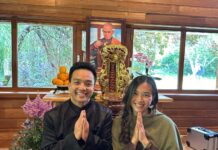

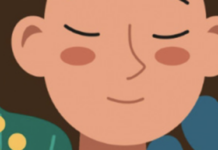


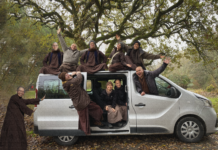







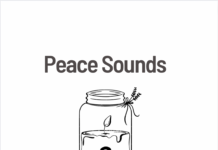
Having read this wonderful article from my lovely friend Mick i was so inspired by his honesty and his hopes for the future. There is no question in my mind that Mick will come back to Northern Ireland and be able to fulfill his wishes. Before he left for Plum Village he was a beautiful person and it would seem that having found his true self whilst being part of the community there that he will now share these wonderful teachings with his family, friends and Sangha members so that we will be able too learn and share in turn our own Non Self,, Confidence in what is still a very divided community here in Northern Ireland and for it to spread even further afield. I look forward to meeting up with my brother Mick very soon.